Ah, the home inspection-part of the homebuying process that causes anxiety for homebuyers, home sellers, and real estate agents alike. You know the heartbreak if you’ve ever lost out on a deal, thanks to some information revealed in a home inspection. To help you get the most out of your inspection for the transaction’s success and the homebuyers’ well-being, I’ve gathered a list of the most important questions for clients to ask home inspectors, as well as a list of common home inspection questions from clients to agents and how to answer them.
⭐Bonus: Download this ready-made question sheet for your clients!⭐
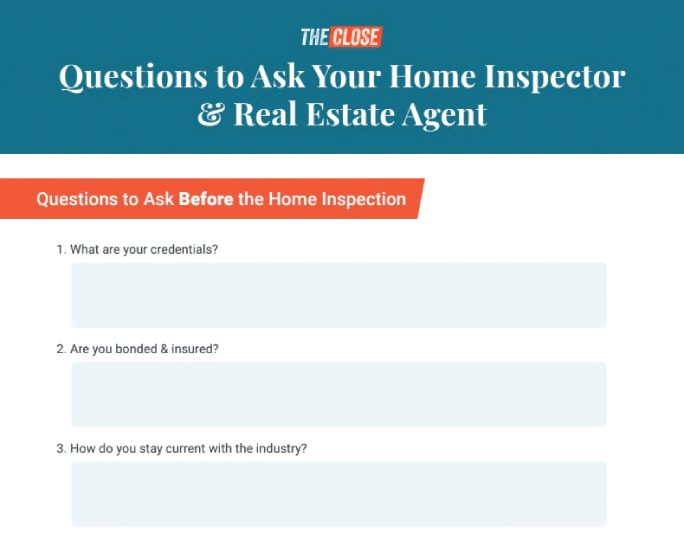
Questions to Ask Before the Home Inspection
Choosing a quality home inspector is a vital part of a thorough house hunting checklist. Although homebuyers should interview several candidates, a realtor should have a handful of vetted inspectors to recommend. Make sure to include these questions when choosing the best inspector.

1. What are your credentials?
When hiring an inspector, asking about credentials should be one of your client’s first questions. A home inspector should be licensed and belong to an organization like the International Association of Certified Home Inspectors or the American Society of Home Inspectors. Go to one of these sites and use the search tool to find a licensed inspector, or look up an inspector you already know. Not all states require inspectors to be licensed, but this is not an area where you want to skimp. Credentials provide expertise and reassurance in the inspection report.
If you’re curious about the home inspector licensing process, read more in our guide on how to become a home inspector.
2. Are you bonded and insured?
When a company (or individual) says it is bonded and insured, it has the proper insurance on its business. Therefore, its work in the home or future home is protected. Bonded is like a second layer of protection for professionals working within other people’s property.
While being bonded or carrying insurance isn’t required in all states, an inspector must carry a bond and insurance to protect the client. If anything happens to a homeowner’s personal property during an inspection, the bond and the insurance will protect the homeowner and buyers.
3. How do you stay current with the industry?
The home inspection industry changes along with the construction and real estate industries, so working with a professional who knows the latest news and legal updates is essential. Ask the home inspector how they maintain their industry knowledge. A home inspector who values continuing education shows dedication to their craft and is likelier to be thorough during the inspection process.
4. Can I attend the home inspection?
This is one of the most important questions to ask a home inspector. The potential buyer pays for the inspection, giving them the right to accompany the inspector as they check out the house. Your inspector should expect this question, but some may have specific recommendations, like not having sellers and buyers accompanying them on the roof, attic, or crawlspace.
5. What type of inspection services do you provide?
Some inspectors specialize in specific systems. For example, I used to work with a home inspector who was also a general contractor and a roofer. When he inspected homes, he walked on the roof. Not all inspectors go to this length, so having someone who did that instead of just looking up from the ground was a bonus.
Home inspectors with additional experience in another field and who provide extra services may charge more for their inspections, but the benefits can be worth it. If you or your clients are concerned about parts of the home, ensure your inspector has experience in those areas.
6. How much experience do you have?
There’s nothing wrong with hiring a home inspector with little experience. However, you might have to ask for some references and find out if they have experience in a related field. For instance, previous experience in construction, plumbing, electrical, HVAC, or roofing could mitigate some of their inexperience. A licensed general contractor or builder with a track record who doesn’t have a home inspection license may also be amply qualified to inspect.
7. How much will the home inspection cost?
Since the homebuyer pays for the inspection, you’ll want to clarify the cost and everything it includes. The average cost of a home inspection across the US is about $300 to $500, depending on individual inspectors, the property type, and the location of your market.
8. Do you reinspect?
Though you and your clients may be eager to finish the inspection and start planning the move, there will be some instances when a home inspector will need to come back for a second inspection. This could happen, for example, if some wood rot needs to be repaired or the seller needs to replace the roof. In other words, a reinspection may be needed after the work is complete if something needs to be fixed before the insurance or the loan can move forward.
Some inspectors will return for a fraction of the original cost or just charge a second full inspection fee. Even though you may not need a reinspection, knowing the expectations in advance is good.
9. What type of report will you deliver?
Some home inspectors will give a detailed report with tons of pictures, which is ideal. Pictures will help you visualize precisely what and where the items are in the home and can help homeowners maintain their homes for years down the line. If the home inspector doesn’t provide photos or diagrams with the report, it might be more difficult to figure out how to tackle any necessary repairs. Ensure you find a home inspector who delivers a detailed written inspection report.
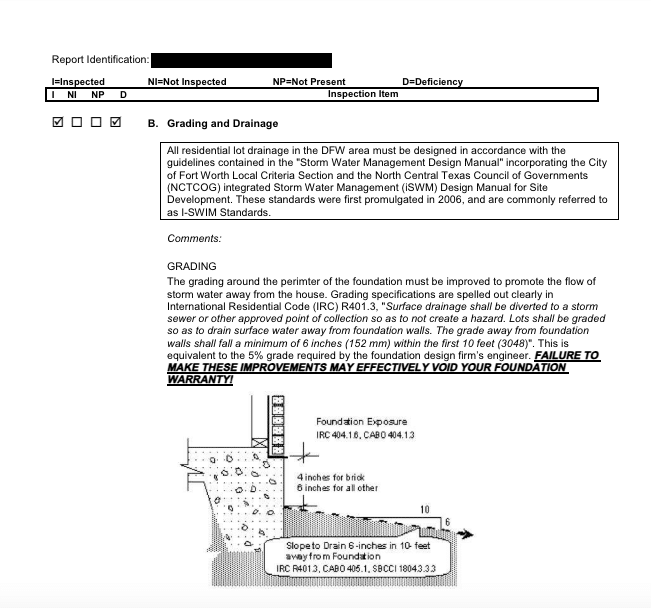
10. How long will it take to receive the inspection report?
When a home is under contract, buyers have limited time to complete the inspection and confirm whether the transaction will move forward or not. If the home inspector drags their feet on delivering the inspection report, that will shorten the time you have to weigh the items in the report and make a final decision. Most inspectors will provide their reports within 24 hours, but discussing this during your interview is a good idea.
11. Will you answer questions after the inspection?
Although knowing what to ask a home inspector before the appointment is helpful, homebuyers and agents often have questions after the inspection. Communicate clearly with potential inspectors about their availability to answer follow-up questions. During your interview, look for someone who is a good communicator and can go over the report in detail, answering all questions in layperson’s terms.
12. Are there any areas you don’t inspect?
Some inspectors have rigid rules about what they do and do not do during an inspection. For example, some inspectors only inspect easily accessible areas and do not move furniture to access certain areas. Additionally, some may not inspect the attic or spaces that require crawling or special gear. In many cases, this isn’t necessary, but it’s ideal to find someone willing to get their hands dirty to understand the home’s condition thoroughly.
Questions to Ask During a Home Inspection
Hopefully, the homebuyers and real estate agent can accompany the inspector as they perform the inspection. This can be a fantastic opportunity to get valuable insight from the inspector on the home’s systems, current condition, and how to properly maintain it. A home inspector can be a wealth of information, so take advantage of your appointment and remember there are no bad questions to ask in a home inspection!
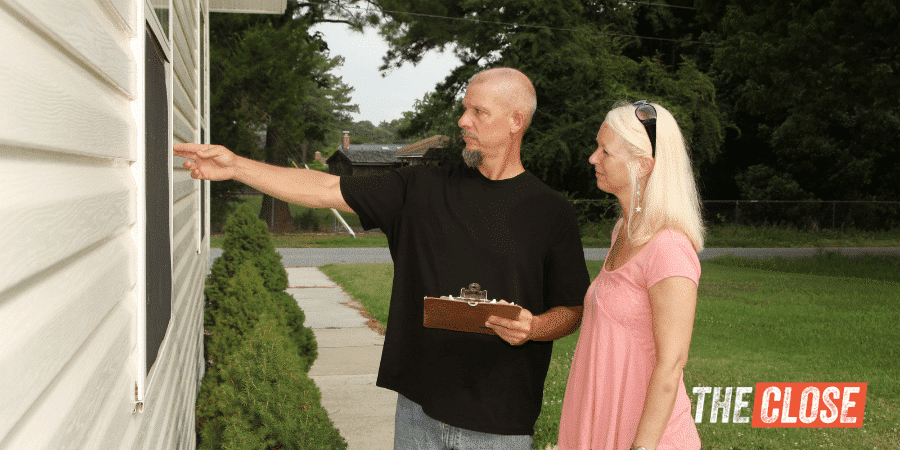
13. I don’t know what that means. Can you clarify?
It’s almost a guarantee that the inspector will point out issues in the home that homebuyers (and sometimes realtors!) aren’t familiar with. These will be some of the best questions to ask during a home inspection because they are golden opportunities to tap into the advanced knowledge of a good home inspector. For example, you can ask the home inspector about the electrical system, the HVAC, or the appliances. If you don’t understand what the inspector is talking about, don’t be afraid to ask for clarification.
14. How’s the condition of the ____?
There are many key home systems that your inspector will go through, and it’s important to learn what they discover about each of them. Even though a professional inspector will likely walk you through these without prompting, be sure to go through each of these listed home features to ask about the status of its condition.
- Roof: Knowing the age and condition of the roof is critical to your home inspection, so be sure to ask for this information. If it eventually needs to be replaced, it is one of the costliest parts of a home to repair.
- HVAC systems: Similar to the roof, get written details about the age, condition, and life expectancy of the HVAC system.
- Electrical system: Ask about the type of wiring in the home, and consider whether it is aluminum or cloth wiring. Ask if the electrical systems or electrical panels will need to be updated and if they’re up to code.
- Plumbing: Ask about the condition of the plumbing and the types of pipes in the home. If it’s an older home, ask if polybutylene pipes are present since they were banned after 1995.
- Foundation or structural issues: Structural issues are usually a deal-breaker for home purchases. Even if there aren’t any major problems, don’t forget to ask if there is anything concerning in the interior or exterior foundation, like cracks or sloping.
- Insulation: Ask how well-insulated the home is, which will require the inspector to check the attic. This is a red flag if the inspector doesn’t check the attic.
- Drainage: Ask the inspector about how water drains from the home and whether any areas could be a concern for pooling.
- Sewage: Ask where the sewage goes and ensure you fully understand this plumbing system. Ask for a grinder pump, septic tank, or gravity pipe for local sewage.
15. Are there any mold concerns?
Mold is a hidden evil that can cause various problems and is not always visible. It could be hiding behind the walls or under flooring. A home inspector must test the air quality to determine if unseen mold is an issue. If the inspector doesn’t test for mold and you have a concern, they should be able to refer you to another professional specializing in mold testing.
16. Any tips on maintaining [insert system]?
Many homebuyers are unfamiliar with the systems in a house. These are vital questions to ask the home inspector during and after an inspection because they can help the owners maintain the home and prevent emergencies for decades. Ask about the maintenance of systems like the following:
- HVAC systems
- Water heater
- Appliances (refrigerator, dishwasher, washer, dryer, etc.)
- Irrigation systems
- Plumbing
- Electrical
17. Do you see any major red flags?
You’ll pick up plenty of information as you work through the inspection. However, keep this question toward the end of the process. This is when the inspector will have a more thorough understanding of all the home’s systems and the overall condition.
18. Would you buy this house?
This is a fantastic, straightforward question to ask a home inspector. Depending on their answer, you and your clients can get more details on the inspector’s overall confidence in the home’s value. The response to this question must be based on the inspector’s inspection, not aesthetics or home type. Would they buy the home in its current condition?
Questions to Ask After the Home Inspection
Now that you know what to ask for in the home inspection, let’s consider what happens after it’s complete. Here are a few post-inspection questions that both the agent and homebuyers can feel comfortable asking to reassure moving forward with the deal.
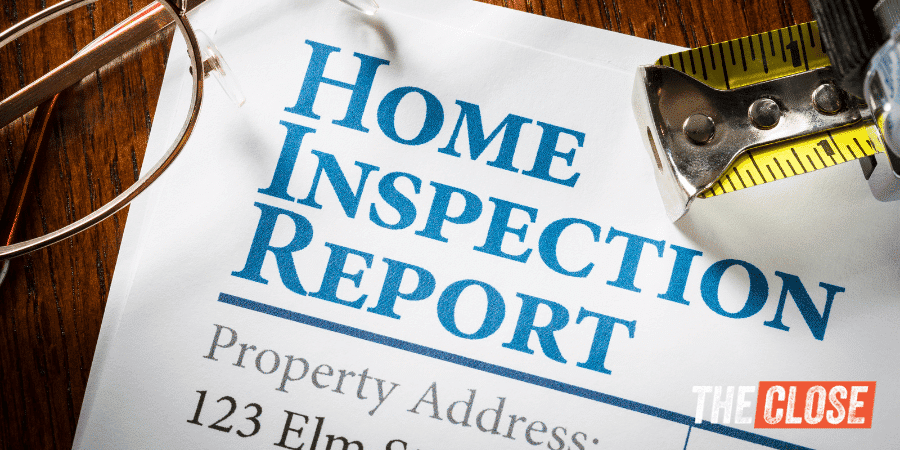
19. What are the costliest repairs needed?
This question will be crucial to buyers because it will determine if a property is too risky or expensive. Depending on the buyers’ overall budget, there may be a way to negotiate with the sellers on certain repairs. For realtors, this is one of the most important times to represent your client’s best interests and work with the seller’s agent to reach an agreement that fits both parties.
20. Who do you recommend for repairs?
Since the home inspection industry is related to construction and real estate, a good-quality inspector should have firsthand experience with plenty of contractors and specialists. Plus, many home inspectors own their businesses and know how valuable referrals are to other homebuyers and other business owners.
21. How can I best maintain my new home?
After purchasing a new home, buyers are typically eager to keep it in pristine condition. While some maintenance may be more straightforward, like mowing the lawn or treating for pests, there are plenty of other maintenance questions you may think of over time. Asking your home inspector about future maintenance tips will help buyers prepare.
For home inspectors or real estate agents, this is a great opportunity to provide value to your leads and clients and potentially generate referrals or repeat business. Consider creating an email or a printable checklist that you can automatically send to your clients. This keeps you top-of-mind and gives your clients an extra level of support that they aren’t likely to forget.
Home Inspection Questions to Expect as a Real Estate Agent
Although real estate agents get accustomed to having home inspections, they aren’t part of most people’s everyday lives. Whether helping a seller or assisting the transaction as a buyer’s agent, it’s important to be well-versed in the basic questions that buyers and sellers may have about the home inspection.

22. Why do I need a home inspection?
Although there are cases when agents make an offer stand out by waiving an inspection, lenders often require it for loan approval. Even for cash buyers, a smart agent will recommend that buyers get one for different reasons.
Sellers can benefit from a pre-listing home inspection by becoming aware of potential issues. This can help agents market the listing more effectively and prevent deals from falling through.
Buyers should learn as much as possible about the home before proceeding with the purchase process. Even if you’re purchasing new construction, it’s wise to have unbiased, professional eyes on the property. To the untrained eye (most buyers), major issues like foundation problems, termite damage, or a roof past its prime may not stand out.
23. What does a home inspection include?
A home inspection is designed to assess the safety and quality of a home by inspecting all of the accessible areas of the home. Typically, a home inspection covers all the major points in the home, including the following:
- Electrical
- Plumbing
- Heating
- Ventilation
- HVAC systems
- Foundation or structural components
- Roof and exterior conditions
- Insulation
- Windows
24. How does a home inspection affect my loan?
A home inspection may not technically or legally be needed for those paying cash on a property. However, buyers using a mortgage to purchase a home should know that most lenders require an inspection and a home appraisal. Banks want to verify that the house is worth the money they’re providing.
25. What’s the difference between a home inspection and an appraisal?
Many first-time homebuyers ask this question because the processes appear similar to those of casual observers. A trained and licensed home inspector looks for the home’s overall condition, checking the electrical, plumbing, foundation, and roof. On the other hand, an appraiser determines the home’s market value. Although they both inspect the house, they evaluate very different things.
A home inspector typically isn’t looking at the home’s cosmetics, like interior paint, countertops, and cabinets. However, the appraiser will examine those elements to determine how the house compares to others on the market. They may compare the upgrades (or lack thereof) to other homes that have recently sold or are currently on the market to make a valuation of the home.
26. What will the inspector find?
Even in successful home inspections, the home typically has a laundry list of items that must be repaired. However, only some of the items on the home inspector’s report must be addressed as part of the transaction. The inspector should point out the major concerns that are most urgent, and the rest of the items may become a to-do list of projects for the future homeowner.
Suppose the home inspection uncovers a major problem, like the HVAC being over 16 years old, a major leak in the plumbing, or the roof’s total lack of life expectancy. In that case, the transaction must be negotiated or could fall through. For the seller agent, you’ll have to help clients decide what steps to take to correct the issue. Buyer’s agents should sit down with their clients to discuss whether this house is right for them to purchase.
FAQs
What are three questions you may ask the inspector?
A few of the best questions to ask during a home inspection involve the condition of various systems in the home, like HVAC, plumbing, or electrical. Two other important questions are as follows:
- What are the costliest repairs needed?
- Would you buy this house?
- Which repairs are safety hazards?
What will a home inspector typically evaluate?
A home inspector will evaluate all systems and features of the house including the following:
- Electrical system
- Plumbing
- HVAC
- Ventilation
- Foundation issues
- Insulation
- Windows
- Gutters/drainage
- Exterior condition (including the roof)
- Checking for mold
- Evaluation of termite damage
What should I look for during a home inspection?
During the home inspection, look for information about the most important systems and elements in the home, such as the roof, hot water heater, plumbing, electrical, and foundation. Pay attention to the inspector’s thoroughness to ensure that you’re getting the most detailed information possible.
Bringing It All Together
Home inspections can be stressful for all parties involved. However, when good real estate agents and qualified home inspectors work together, the process can be pain-free and help buyers make wise decisions. This list of questions to ask during a home inspection will help home buyers and real estate agents alike be fully prepared for a successful inspection.






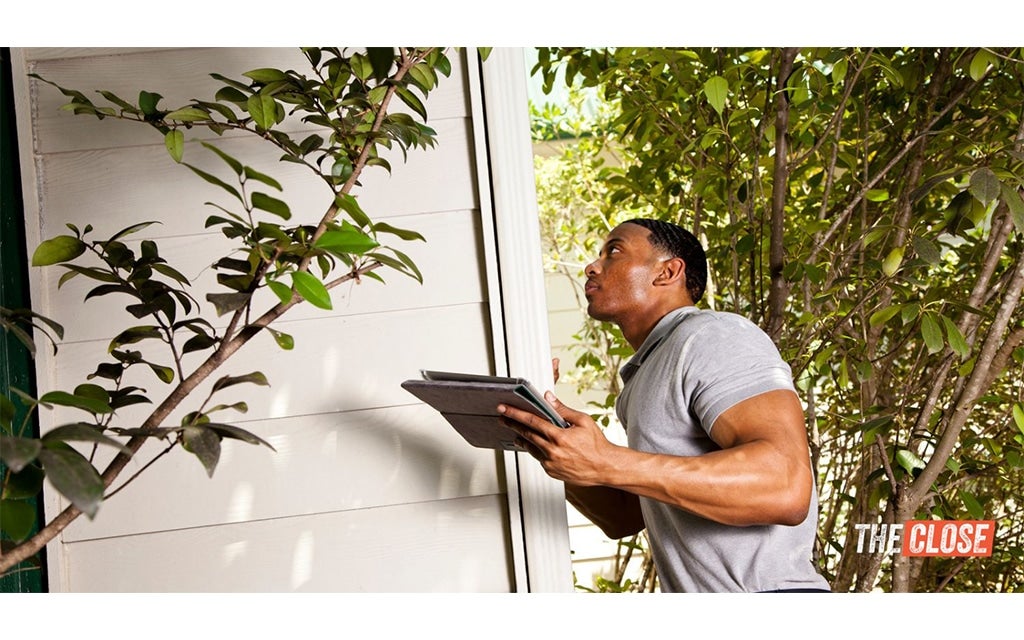



Add comment